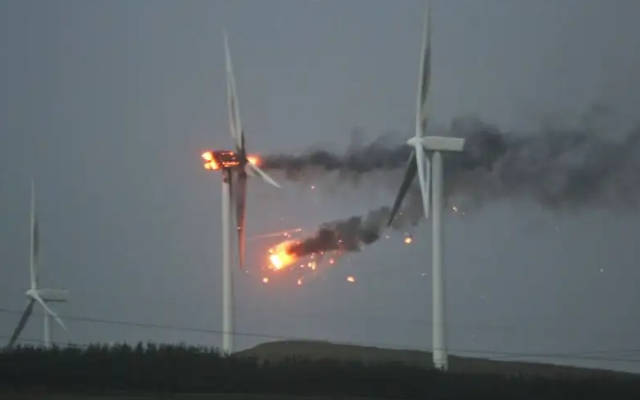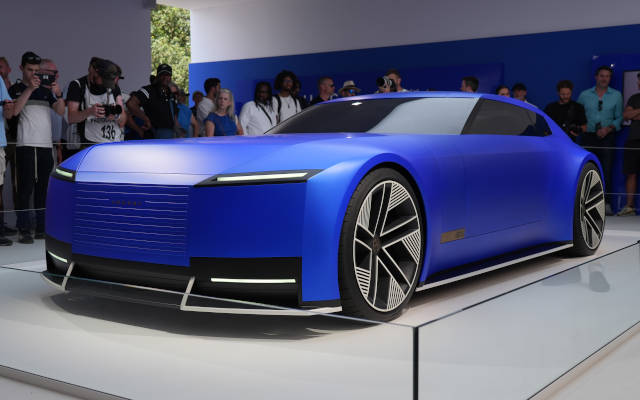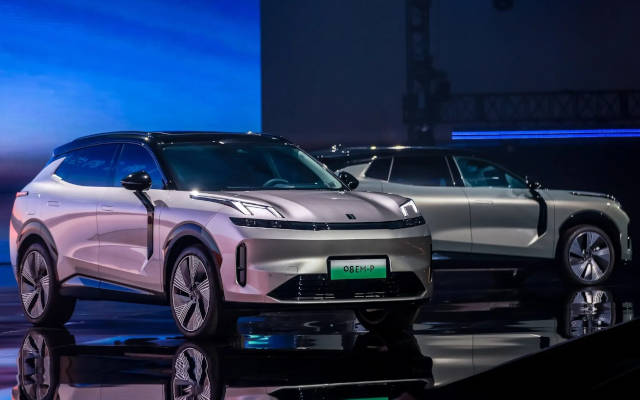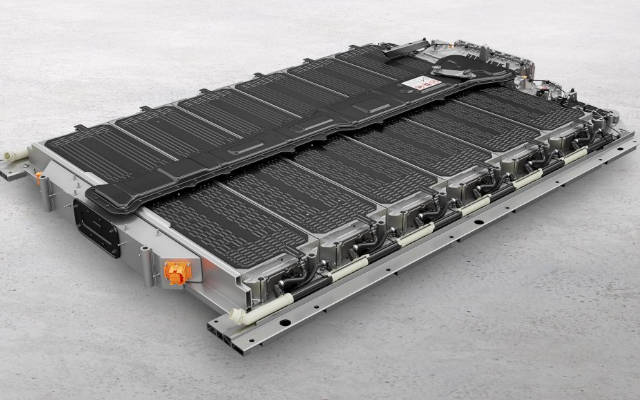 EDITOR'S PICK
EDITOR'S PICK
Why Wind Farms Attract So Much Misinformation And Conspiracy Theory
27 Oct 2025 | Synopsis
 Wind farms attract misinformation due to their visibility in rural areas, where proposed projects often spark fears about health, property values, and landscape disruption. Online echo chambers amplify conspiracy theories, framing turbines as symbols of climate mandates or government overreach. Despite strong scientific consensus on safety and benefits, wind energy's role in decarbonization makes it a target for ideological backlash
Wind farms attract misinformation due to their visibility in rural areas, where proposed projects often spark fears about health, property values, and landscape disruption. Online echo chambers amplify conspiracy theories, framing turbines as symbols of climate mandates or government overreach. Despite strong scientific consensus on safety and benefits, wind energy's role in decarbonization makes it a target for ideological backlash The Yangtze River Is Becoming the World's Largest Electrified Trade Corridor
26 Oct 2025 | Synopsis
 China is transforming the Yangtze River into the world's largest electrified trade corridor. With electric cargo ships, shore power stations, and smart logistics hubs, the initiative aims to cut emissions and boost efficiency across 1,000+ miles of inland waterway. It's a key part of China's decarbonization strategy, blending infrastructure upgrades with clean energy to reshape global shipping.
China is transforming the Yangtze River into the world's largest electrified trade corridor. With electric cargo ships, shore power stations, and smart logistics hubs, the initiative aims to cut emissions and boost efficiency across 1,000+ miles of inland waterway. It's a key part of China's decarbonization strategy, blending infrastructure upgrades with clean energy to reshape global shipping.Polarizing Or Perfection? Jaguar Chief Defends Controversial Designs
26 Oct 2025 | Synopsis
 Jaguar's chief designer defends the bold, minimalist styling of the upcoming all-electric Type 00, calling it "polarizing perfection." The grand tourer features a high-performance EV powertrain with dual motors, over 430 miles of range, and rapid charging. Aimed at redefining Jaguar's luxury identity, the Type 00 marks the brand's shift to an all-electric future by 2025, embracing exclusivity and avant-garde design to stand out in a crowded premium EV market.
Jaguar's chief designer defends the bold, minimalist styling of the upcoming all-electric Type 00, calling it "polarizing perfection." The grand tourer features a high-performance EV powertrain with dual motors, over 430 miles of range, and rapid charging. Aimed at redefining Jaguar's luxury identity, the Type 00 marks the brand's shift to an all-electric future by 2025, embracing exclusivity and avant-garde design to stand out in a crowded premium EV market.The Rise of Red China Automakers
26 Oct 2025 | Synopsis
 Chinese automakers, fueled by massive investment and a thriving domestic market, are rapidly evolving. Initially known for copying, they now innovate in EVs, smart tech, and design. Brands like BYD, Nio, and XPeng are expanding globally, challenging established Western and Japanese giants with competitive pricing and advanced features. Their growing influence reshapes the global auto industry.
Chinese automakers, fueled by massive investment and a thriving domestic market, are rapidly evolving. Initially known for copying, they now innovate in EVs, smart tech, and design. Brands like BYD, Nio, and XPeng are expanding globally, challenging established Western and Japanese giants with competitive pricing and advanced features. Their growing influence reshapes the global auto industry. Innovative High-Voltage System In The Porsche Cayenne Electric: Performance Meets Efficiency
25 Oct 2025 | Synopsis
 The 2025 Porsche Cayenne Electric features an 800-volt system, a 113 kWh structural battery, dual cooling, and predictive thermal management for peak efficiency and performance. It offers over 600 km range, charges up to 400 kW, and supports wireless charging. Innovations in cell chemistry, cooling, and energy management enable fast, safe, and robust long-distance EV usability.
The 2025 Porsche Cayenne Electric features an 800-volt system, a 113 kWh structural battery, dual cooling, and predictive thermal management for peak efficiency and performance. It offers over 600 km range, charges up to 400 kW, and supports wireless charging. Innovations in cell chemistry, cooling, and energy management enable fast, safe, and robust long-distance EV usability.
 EVWorld Exclusive
EVWorld Exclusive
Tailpipe Truthers and the Post-EV Gambit: Mazda's Contrarian Climate Play
04 Nov 2025 |
Mazda challenges EV orthodoxy by arguing that tailpipe emissions alone don't tell the full climate story. At the 2025 Japan Mobility Show, it promoted a lifecycle emissions approach, favoring plug-in hybrids, synthetic fuels, and fuel-flexible drivetrains over full electrification. Critics see this as stalling, but Mazda frames it as a long-term bet on energy diversity and grid realism. Whether it’s visionary or outdated depends on how the world decarbonizes.
It's a provocative stance in an era of plug-in mandates and lithium land rushes. Mazda isn't anti-EV - they're just not convinced it's the only answer. Their strategy leans into plug-in hybrids, synthetic fuels, and fuel-flexible drivetrains. The upcoming Mazda6e will be their first EV, but it's framed as a piece of a broader puzzle, not a pivot. They're betting that the world won't decarbonize evenly, and that consumers will eventually care more about total emissions than just what comes out of the tailpipe.
Critics might call it graveyard whistling. Mazda lacks proprietary battery tech, charging infrastructure, and the scale of its rivals. If synthetic fuels stall or EV mandates tighten, they could be cornered. But if lifecycle transparency becomes the norm - and if synthetic fuels scale for aviation, shipping, and legacy fleets - Mazda might emerge as the brand that saw beyond the plug.
Imagine a roadmap where Mazda survives not by chasing Tesla, but by redefining mobility itself. Plug-in hybrids with rotary range extenders. Fuel-flexible platforms that run on algae-based blends or carbon-neutral e-fuels. Grid-aware vehicles that optimize charging based on local energy mix. Subscription-based fuel plans bundled with ownership. Even retrofit kits that convert classic Mazdas into climate-neutral demonstrators. It's not impossible - it's just not what the market rewards right now.
Mazda's contrarianism is risky, but it's also refreshingly honest. They're asking hard questions about energy sourcing, manufacturing ethics, and the fate of legacy fleets. In a world where EVs are marketed as moral absolutes, Mazda is arguing for nuance. Whether that nuance translates into market survival - or just a footnote in mobility history - depends on how fast the world decarbonizes its grids, scales battery recycling, and embraces fuel diversity.
For now, Mazda remains the tailpipe truther of the auto industry. Not because they deny climate urgency, but because they refuse to simplify it. And in a landscape dominated by plug-in orthodoxy, that alone makes them worth watching.
Trail Theater: Toyota's Scion 01 Concept Reviewed
04 Nov 2025 |  Toyota's Scion 01 Concept is a hybrid off-road side-by-side with bold styling and a Tacoma-derived powertrain. It features "Silent Mode" for short-range electric-only driving but lacks plug-in capability or new battery tech. Despite its aggressive design and nostalgic branding, it offers no real innovation - just a repackaged hybrid system in a concept shell. It's more marketing theater than a meaningful step forward in electric mobility.
Toyota's Scion 01 Concept is a hybrid off-road side-by-side with bold styling and a Tacoma-derived powertrain. It features "Silent Mode" for short-range electric-only driving but lacks plug-in capability or new battery tech. Despite its aggressive design and nostalgic branding, it offers no real innovation - just a repackaged hybrid system in a concept shell. It's more marketing theater than a meaningful step forward in electric mobility.
He Tracked Toxic Wells in America's Parks. Then the Government Cut Him Loose.
03 Nov 2025 |  Jonathon Kolak, the only federal scientist tracking abandoned oil and gas wells in U.S. national parks, was abruptly fired in 2023. His work exposed methane leaks and legacy pollution across public lands. No replacement was named. Critics say his dismissal signals a retreat from environmental accountability and transparency, just as the U.S. faces mounting climate and cleanup challenges.
Jonathon Kolak, the only federal scientist tracking abandoned oil and gas wells in U.S. national parks, was abruptly fired in 2023. His work exposed methane leaks and legacy pollution across public lands. No replacement was named. Critics say his dismissal signals a retreat from environmental accountability and transparency, just as the U.S. faces mounting climate and cleanup challenges.
China's Thorium Breakthrough: A Strategic Leap Toward Safer, Sustainable Nuclear Energy
03 Nov 2025 |  China's Thorium Molten Salt Reactor achieved the world's first thorium-to-uranium fuel conversion, proving thorium can generate uranium-233 for future reactors. The experimental setup doesn't produce electricity but validates fuel viability. China aims to build a 100 MW demonstration reactor by 2035. This breakthrough supports safer, scalable nuclear energy and positions China as a leader in fourth-generation reactor technology.
China's Thorium Molten Salt Reactor achieved the world's first thorium-to-uranium fuel conversion, proving thorium can generate uranium-233 for future reactors. The experimental setup doesn't produce electricity but validates fuel viability. China aims to build a 100 MW demonstration reactor by 2035. This breakthrough supports safer, scalable nuclear energy and positions China as a leader in fourth-generation reactor technology.
Carbon Neutral Summit 2025 Preview - The Hard Questions Automakers Must Answer
01 Nov 2025 |  The EMEA Automotive Carbon Neutral Summit 2025 will confront the gap between ambition and execution. Automakers must scale low‑carbon technologies, decarbonize sprawling supply chains, and secure renewable energy for factories and charging networks. Executives will push for clear policy, carbon pricing, and stable investment signals. Circular economy practices and global competition add urgency. The challenge: make carbon neutrality practical, profitable, and fast enough to meet climate goals.
The EMEA Automotive Carbon Neutral Summit 2025 will confront the gap between ambition and execution. Automakers must scale low‑carbon technologies, decarbonize sprawling supply chains, and secure renewable energy for factories and charging networks. Executives will push for clear policy, carbon pricing, and stable investment signals. Circular economy practices and global competition add urgency. The challenge: make carbon neutrality practical, profitable, and fast enough to meet climate goals.
 04 Nov 2025 13:45:21 UTC |
RECENT PODCASTS
Tesla RoboTaxis Crash More Than Waymo - 35,000 Rivian Amazon Vans
SEARCH RSSTREAM
 47 New Postings In Past 24 Hours
47 New Postings In Past 24 Hours
Category:mobility
Region:NoAmerica
Date:03 Nov 2025
Category:mobility
Region:NoAmerica
Date:03 Nov 2025
Category:mobility
Region:AsiaPacific
Date:03 Nov 2025
Category:policy
Region:NoAmerica
Date:03 Nov 2025
Category:mobility
Region:AsiaPacific
Date:03 Nov 2025
Category:mobility
Region:AsiaPacific
Date:03 Nov 2025
Category:autonomy
Region:NoAmerica
Date:03 Nov 2025
Category:finance
Region:NoAmerica
Date:03 Nov 2025
Category:mobility
Region:AsiaPacific
Date:03 Nov 2025
Category:review
Region:AsiaPacific
Date:03 Nov 2025
Category:mobility
Region:Europe
Date:03 Nov 2025
Category:mobility
Region:Europe
Date:03 Nov 2025
Category:finance
Region:NoAmerica
Date:03 Nov 2025
Category:energy
Region:Global
Date:03 Nov 2025
Category:environment
Region:AustralPacific
Date:03 Nov 2025
Category:policy
Region:NoAmerica
Date:03 Nov 2025
Category:energy
Region:NoAmerica
Date:03 Nov 2025
Category:energy
Region:NoAmerica
Date:03 Nov 2025
Category:autonomy
Region:NoAmerica
Date:03 Nov 2025
Category:finance
Region:NoAmerica
Date:03 Nov 2025